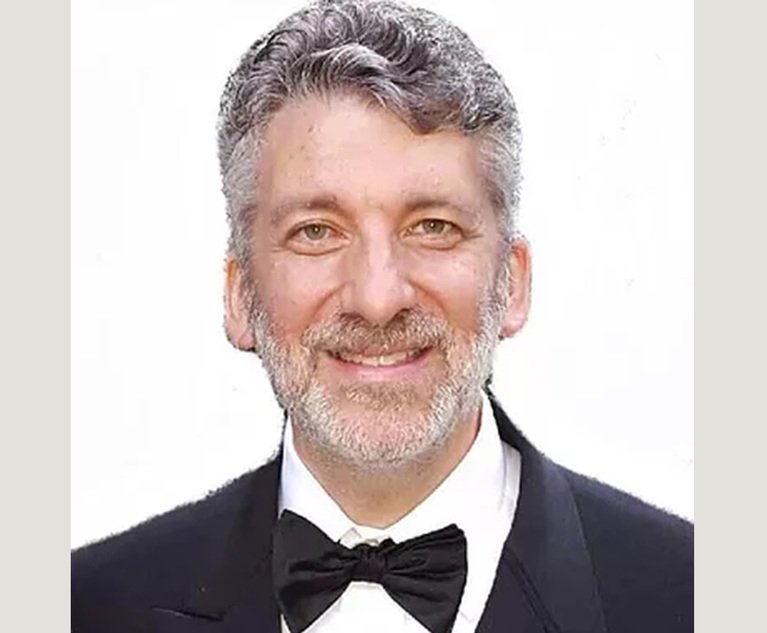SCOTUS Petition Takes Aim at Ambiguous Federal Opioid RX Laws
Lubetsky v. United States
Full Petition is included at the bottom of this article
Dr. Ronald Lubetsky, a Florida physician, takes aim at the Controlled Substances Act in a new Supreme Court petition filed on August 5, 2024. His case is both shocking and tragic but his fight is not over.
Dr. Ronald Lubetsky photo credit, the Florida Bar.
The government’s prosecution of Dr. Lubetsky centers around the ambiguous language of the CSA, particularly the phrase “outside the usual course of his professional practice, other than for a legitimate medical purpose.” The government has moved away from the original intent of the CSA, which was to target drug trafficking, and instead has begun prosecuting physicians based on increasingly vague and shifting standards of medical practice.
At trial, the government’s medical expert, Dr. Rubenstein, testified that Dr. Lubetsky’s prescriptions were issued outside the usual course of professional practice. This testimony was based solely on audio recordings of the patient visits and did not include a review of any medical records, diagnostic imaging, or the patient’s prescribing histories.
Rubenstein’s testimony was based solely on audio recordings of the patient visits and did not include a review of any medical records, diagnostic imaging, or the patient’s prescribing histories.
Dr. Rubenstein asserted that the lack of a detailed physical examination and comprehensive medical history in these specific cases rendered the prescriptions illegitimate. However, this opinion was formed without considering the full context of Dr. Lubetsky’s practice and the treatment of thousands of legitimate pain patients.
The Circuit Split and Post-Ruan Interpretation
A key legal issue in Dr. Lubetsky’s case is the circuit split over how the ambiguous language of the CSA should be interpreted. Specifically, courts are divided on whether the requirement for a prescription to be issued “for a legitimate medical purpose by an individual practitioner acting in the usual course of his professional practice” should be read conjunctively or disjunctively.
• Conjunctive Reading: Under this interpretation, both elements—issuing for a legitimate medical purpose and acting in the usual course of professional practice—must be satisfied for a prescription to be considered lawful.
• Disjunctive Reading: Under this interpretation, a prescription could be deemed unlawful if it fails to meet either of these elements. This reading lowers the threshold for criminal liability, as a physician could be prosecuted even if they prescribe for a legitimate medical purpose but allegedly do not follow the usual course of professional practice.
The Eleventh Circuit, where Dr. Lubetsky was tried, has adopted the disjunctive reading. This approach has significant implications, as it allows the government to prosecute physicians even when there is no clear evidence that the prescriptions were issued for anything other than a legitimate medical purpose. This interpretation is in conflict with other circuits that have adopted the conjunctive reading, which provides greater protection to physicians by requiring that both elements be proven before a conviction can be secured.
The Supreme Court’s decision in Ruan v. United States was expected to clarify this issue, but it has instead led to further narrowing by the U.S. Circuit Courts. In Ruan, the Court recognized the ambiguity in the language of the CSA and highlighted the importance of a strong scienter requirement to avoid overdeterrence. Despite this, the Eleventh Circuit has continued to uphold the disjunctive reading, creating a situation where physicians are left with little clarity on the standards they must meet to avoid criminal liability.
Government’s Shifting Standards
Dr. Lubetsky’s case also underscores a troubling trend: the government’s shifting standards for what constitutes acceptable medical practice under the CSA. Historically, the CSA was used to target physicians who were clearly engaged in drug trafficking—those who prescribed controlled substances without any medical justification, often to patients who explicitly stated they intended to use the drugs for non-medical purposes. However, in recent years, the government has broadened its interpretation of the CSA, prosecuting physicians based on vague and unenumerated standards of medical practice that often go beyond what state laws require.
In Dr. Lubetsky’s case, the government’s expert applied a standard for prescribing that exceeded Florida’s requirements. Florida law mandates that a complete medical history and physical examination must be conducted before beginning opioid treatment, but there is no requirement for a physical examination at every follow-up visit. The expert, however, testified that a physical examination was required at every visit when opioids were prescribed, thus holding Dr. Lubetsky to a higher standard than what is legally required in the state.
This evolving and inconsistent application of standards places physicians in an untenable position, where they must navigate not only state laws but also fluctuating federal expectations that may not align with established medical practices. The consequence is a chilling effect on the practice of pain management, where doctors may avoid prescribing necessary medications out of fear of prosecution, leaving patients to suffer.
Interested Parties May File an Amicus Brief with the Court
Given the complex legal and medical issues at play in this case, it is imperative that advocacy groups concerned with patient care, medical ethics, and physician rights take action. Filing amicus briefs in support of Dr. Lubetsky’s petition to the Supreme Court is crucial to ensure that the Court fully understands the broader implications of this case. These briefs can help the Court appreciate the potential harm of allowing ambiguous and overly stringent interpretations of the CSA to persist.


